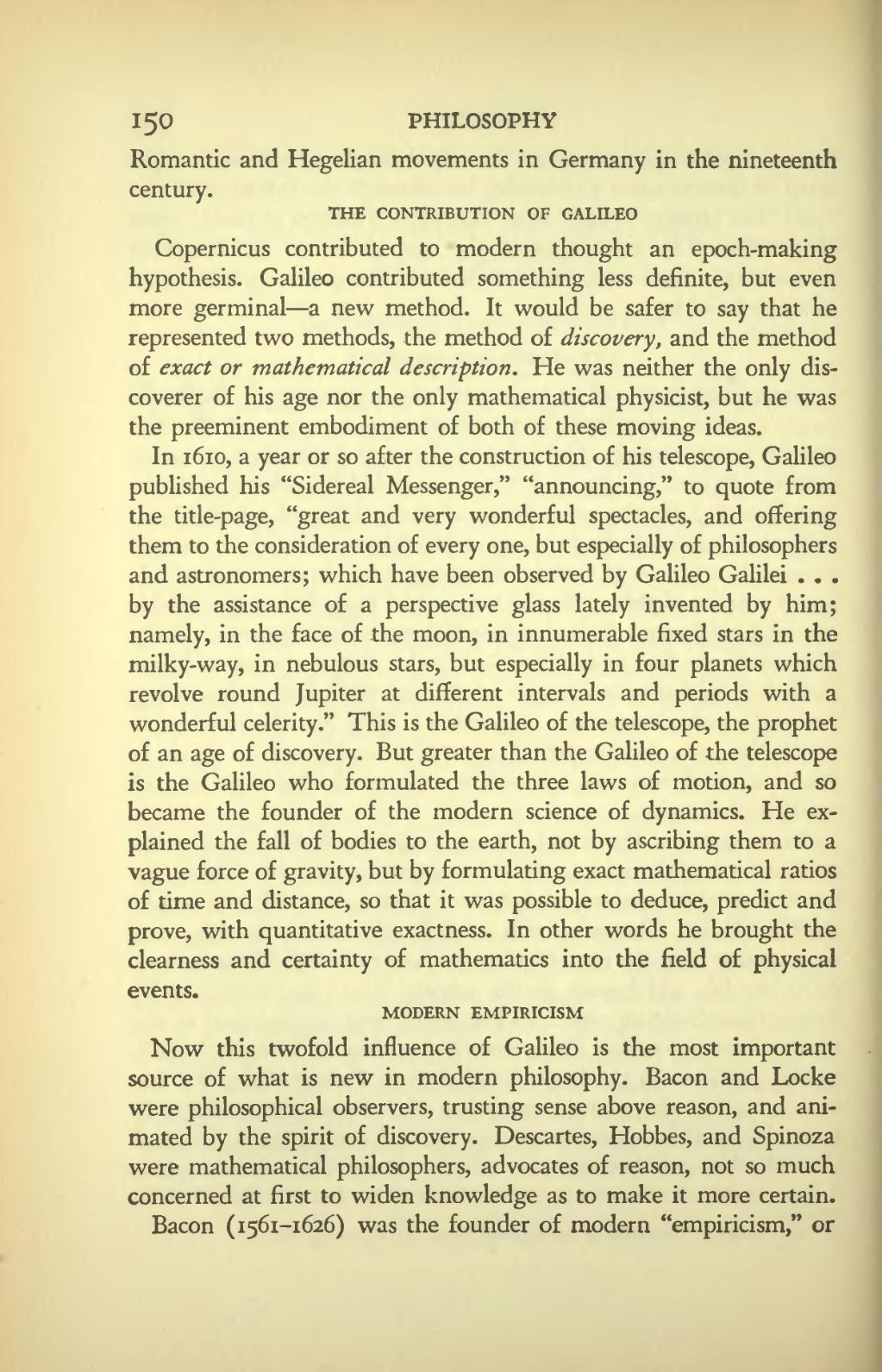Romantic and Hegelian movements in Germany in the nineteenth century.
THE CONTRIBUTION OF GALILEO
Copernicus contributed to modern thought an epoch-making hypothesis. Galileo contributed something less definite, but even more germinal a new method. It would be safer to say that he represented two methods, the method of discovery, and the method of exact or mathematical description. He was neither the only discoverer of his age nor the only mathematical physicist, but he was the preeminent embodiment of both of these moving ideas.
In 1610, a year or so after the construction of his telescope, Galileo published his "Sidereal Messenger," "announcing," to quote from the title-page, "great and very wonderful spectacles, and offering them to the consideration of every one, but especially of philosophers and astronomers; which have been observed by Galileo Galilei … by the assistance of a perspective glass lately invented by him; namely, in the face of the moon, in innumerable fixed stars in the milky-way, in nebulous stars, but especially in four planets which revolve round Jupiter at different intervals and periods with a wonderful celerity." This is the Galileo of the telescope, the prophet of an age of discovery. But greater than the Galileo of the telescope is the Galileo who formulated the three laws of motion, and so became the founder of the modern science of dynamics. He explained the fall of bodies to the earth, not by ascribing them to a vague force of gravity, but by formulating exact mathematical ratios of time and distance, so that it was possible to deduce, predict and prove, with quantitative exactness. In other words he brought the clearness and certainty of mathematics into the field of physical events.
MODERN EMPIRICISM
Now this twofold influence of Galileo is the most important source of what is new in modern philosophy. Bacon and Locke were philosophical observers, trusting sense above reason, and animated by the spirit of discovery. Descartes, Hobbes, and Spinoza were mathematical philosophers, advocates of reason, not so much concerned at first to widen knowledge as to make it more certain.
Bacon (1561–1626) was the founder of modern "empiricism," or
